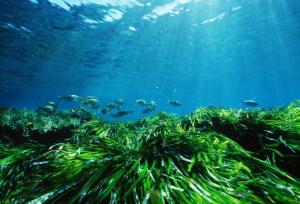
Grants
Sea
OBSAM | Posidonia Oceanica study – Phase 2
€3,150 awarded awarded
Organisation requesting funding:
OBSAM. MENORCA’S SOCIO-ENVIRONMENTAL OBSERVATORY
Issue of Concern being addressed:
Posidonia – marine conservation
Project Overview:
In 2018, MEPF funded a Study of the Posidonia Oceanica meadows in Menorca that showed the state of conservation of the grasslands studied in, or near, ports are unfavourable. The study findings confirmed the delicate situation of these prairies. In the Illa de l’Aire area, the Posidonia meadows presented a more favorable state of conservation, although they did not reach the optimum state that this plant can present in depth evaluated.
With support from the MEPF, the project proposes to support the Balearic government in its aim to consolidate the research and monitoring of the Posidonia Oceanica meadows around Menorca.
Monitoring Posidonia Oceanica is considered essential in order to understand marine conservation as a whole. The final approval of the Posidonia Decree and the extension of the Biosphere Reserve to the sea, turns the monitoring of the Posidonia Oceanica meadows into one of the most meaningful measures for the management of Menorca’s natural heritage.
The Posidonia monitoring, which covered 14 sampling stations around Menorca, was abandoned in 2010 and was re-started last year thanks to the MEPF support. For this reason, OBSAM proposes this new 2019 project to support the Balearic government in its aim to thoroughly follow-up lasts year’s results and give continuity to the research.
Project collaborations:
This project will be supported by the Balearic Institute of Nature of the Government of the Balearic Islands and the Insular Directorate of Rural and Marine Affairs, who will provide logistical support, skippers and boats in the field work.
TRAGSATEC, a private company specialised in research, consultations and engineering of environmental matters, will also collaborate by providing a technician for the field work and in the financing of part of the material and air loads.
General project objective:
This project will continue and consolidate the Posidonia meadows monitoring study of 2018. Of the 10 sampling stations that were part of the Posidonia prairie monitoring, only 5 were sampled during 2018. In 2019, the OBSAM intends to sample the rest, a total of 10 stations, in order to have a 100% of the sampling points evaluated within two years.
N.B. There is a need to repeat the sample point at the Fornells station, as it is one of the stations the OBSAM is most concerned about.
Special contribution of the MEPF to the project: the MEPF funding would allow to add two points would in the bay of Fornells where, in 2010, fixed sampling panels were installed to increase the monitoring of the bay due to the concern aroused by this station. The sampling must be repaired and replaced since in 2018 they were disassembled, and the census could not be carried out.
The projects specific objectives are:
The specific objectives are those set in the 2018 project and that are to be followed during the present project have been maintained and redefined:
– To sample all the stations of the Posidonia Oceanica prairie-monitoring network minus the stations sampled in 2018, except the Fornells port station.
– Evaluate the state on conservation of the current Posidonia meadows surrounding Menorca and relate to various parameters such as water quality and anchorage pressure.
– Locate possible surviving NACRAS, (Pinna Nobilis), a species included in the European Habitats directive, as it is facing a period of mass mortality in practically the whole of the Mediterranean.
– Identify sensitive/vulnerable areas and detect possible ecological imbalances.
– Detect the presence of invasive species.
– Elaborate a series of statistics that will allow the observation of tendencies in the future and be able to be used as bio-indicators.
Project phases:
OBSAM aims to carry out the study in July and August 2019.